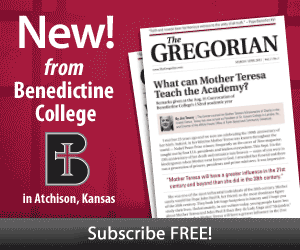Faith
How the Media is Missing the Pope’s Radical Critique of American Religion
I sometimes think that Catholic theology operates on a super high frequency that just doesn’t register on some people’s hearing. That’s the conclusion I came to when I read veteran NY Times Vatican-beat reporter Alessandra Stanley’s summing up of the papal visit so far. Comparing it to Prince Charles’ second wedding to Camilla Parker Bowles, (in contrast to JPII’s more Princess Diana-like “extravanga” visits) was clever, but trite. Has the trip, for her, really been about “seamlessly binding together the thorniest Vatican troubles — pedophile priests, shrinking parishes, nonobservant believers — with papal mystique and fun Vatican facts.” This is someone who has covered the Vatican for years. She has ears to hear (and eyes to read)—did she miss the substance of the Pope’s statements, which were nothing less than a radical critique of how American Catholics live their faith?
Just as David Schindler and Msgr. Lorenzo Albacate told us (and as most newspaper headlines noted, in citing the Pope’s warning about “secularism,” but without much explanation), the Pope, in his speech to the Bishops at the Basilica last night, praised America for its strong religious faith, but warned that the country’s secular culture too often leads Catholics to profess faith in Christ in church on Sunday, but to leave their faith behind the rest of the week, as they go about their secular lives. He said:
While it is true that this country is marked by a genuinely religious spirit, the subtle influence of secularism can nevertheless color the way people allow their faith to influence their behavior. Is it consistent to profess our beliefs in church on Sunday, and then during the week to promote business practices or medical procedures contrary to those beliefs? Is it consistent for practicing Catholics to ignore or exploit the poor and the marginalized, to promote sexual behavior contrary to Catholic moral teaching, or to adopt positions that contradict the right to life of every human being from conception to natural death? Any tendency to treat religion as a private matter must be resisted. Only when their faith permeates every aspect of their lives do Christians become truly open to the transforming power of the Gospel.
What’s interesting is that the Pope doesn’t recommend remedying this situation through sheer willpower, as if having “the courage to be Catholic” would be enough. He calls for more creativity and imagination in how the faith is lived and presented, and opening up to God through prayer, service, and communion with others. In other words, rather than more willpower, which only encourages our tendency towads self-sufficiency and autonomy, he’s calling us to be more receptive to the living God who is the source of our being. This is the spiritual method of the lay movements, not the political method used by Catholic pressure groups. It’s the approach he highlighted in his two encyclicals, God is Love, and Saved By Hope, each of which were appeals to our common “religious sense,” the restlessness for God and the yearning for true happiness we all share. The Pope said:
People today need to be reminded of the ultimate purpose of their lives. They need to recognize that implanted within them is a deep thirst for God. They need to be given opportunities to drink from the wells of his infinite love. It is easy to be entranced by the almost unlimited possibilities that science and technology place before us; it is easy to make the mistake of thinking we can obtain by our own efforts the fulfillment of our deepest needs. This is an illusion. Without God, who alone bestows upon us what we by ourselves cannot attain (cf. Spe Salvi, 31), our lives are ultimately empty. People need to be constantly reminded to cultivate a relationship with him who came that we might have life in abundance (cf. Jn 10:10). The goal of all our pastoral and catechetical work, the object of our preaching, and the focus of our sacramental ministry should be to help people establish and nurture that living relationship with “Christ Jesus, our hope” (1 Tim 1:1).
Pope Benedict XVI also directly addressed the implications of our excessive individualism, a legacy of our Protestant heritage (as Chesterton said, in America, even the Catholics are Protestant).
In a society which values personal freedom and autonomy, it is easy to lose sight of our dependence on others as well as the responsibilities that we bear towards them. This emphasis on individualism has even affected the Church (cf. Spe Salvi, 13-15), giving rise to a form of piety which sometimes emphasizes our private relationship with God at the expense of our calling to be members of a redeemed community.
In response to questions after the speech, the Pope returned to the theme of America’s tendency towards a faith that is merely private:
Perhaps America’s brand of secularism poses a particular problem: it allows for professing belief in God, and respects the public role of religion and the Churches, but at the same time it can subtly reduce religious belief to a lowest common denominator. Faith becomes a passive acceptance that certain things “out there” are true, but without practical relevance for everyday life. The result is a growing separation of faith from life: living “as if God did not exist”. This is aggravated by an individualistic and eclectic approach to faith and religion: far from a Catholic approach to “thinking with the Church”, each person believes he or she has a right to pick and choose, maintaining external social bonds but without an integral, interior conversion to the law of Christ. Consequently, rather than being transformed and renewed in mind, Christians are easily tempted to conform themselves to the spirit of this age (cf. Rom 12:3). We have seen this emerge in an acute way in the scandal given by Catholics who promote an alleged right to abortion.
He ended by providing the answer to the problem he diagnosed decades ago, in 1968, in his book, Introduction to Christianity. The radical argument made by that book was brought to the public’s attention by Msgr. Lorenzo Albacete in his interview with Charley Rose shortly after the Pope’s election.
According to Albacete, then Josef Ratzinger saw that: “the number one problem with Christianity today is that the Christian life is no longer convincing. It doesn’t convince anyone. So his program is the formation of he says creative minorities, throughout the world, that will offer not words but the witness of a life full of humanity, of peace, of joy, so that people from what is a cruel world will find a home in these communities.”
Reading the Pope’s speech to the bishops, what’s evident is that the Pope is proposing the method of the “creative minorities” to all the faithful. While the Pope will accept a Church that is smaller and more convincing, if that is God’s will, he won’t accept it without a fight: it’s the task of the Bishops to promote the “call to holiness” to all Catholics:
“In a society that rightly values personal liberty, the Church needs to promote at every level of her teaching — in catechesis, preaching, seminary and university instruction — an apologetics aimed at affirming the truth of Christian revelation, the harmony of faith and reason, and a sound understanding of freedom, seen in positive terms as a liberation both from the limitations of sin and for an authentic and fulfilling life. In a word, the Gospel has to be preached and taught as an integral way of life, offering an attractive and true answer, intellectually and practically, to real human problems… I believe that the Church in America, at this point in her history, is faced with the challenge of recapturing the Catholic vision of reality and presenting it, in an engaging and imaginative way, to a society which markets any number of recipes for human fulfillment.









By Dave AT 04.17.08 08:37PM Not Rated
The Pope really explained it all very well.